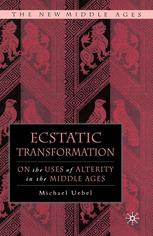

Most ebook files are in PDF format, so you can easily read them using various software such as Foxit Reader or directly on the Google Chrome browser.
Some ebook files are released by publishers in other formats such as .awz, .mobi, .epub, .fb2, etc. You may need to install specific software to read these formats on mobile/PC, such as Calibre.
Please read the tutorial at this link: https://ebookbell.com/faq
We offer FREE conversion to the popular formats you request; however, this may take some time. Therefore, right after payment, please email us, and we will try to provide the service as quickly as possible.
For some exceptional file formats or broken links (if any), please refrain from opening any disputes. Instead, email us first, and we will try to assist within a maximum of 6 hours.
EbookBell Team

4.4
52 reviewsThis book studies the way in which medieval ways of knowing the Oriental 'other' were constructed around the idea of a utopic East as located in the legend and Letter of Prester John (c. 1160). The birth of utopic thinking, it argues, is tied to an understanding of alterity having as much to do with the ways the medieval West understood itself as the manner in which the foreign was mapped. Drawing upon the insights of cultural studies, film studies, and psychoanalysis, this book rethinks the contours of the known and the unknown in the medieval period. It demonstrates how the idea of otherness intersected in intricate ways with other categories of difference (spatial, gender, and religious). Scholars in the fields of history as well as literary and religious studies will be interested in the manner in which the book considers the formal dimensions of how histories of the Oriental other were written and lived.